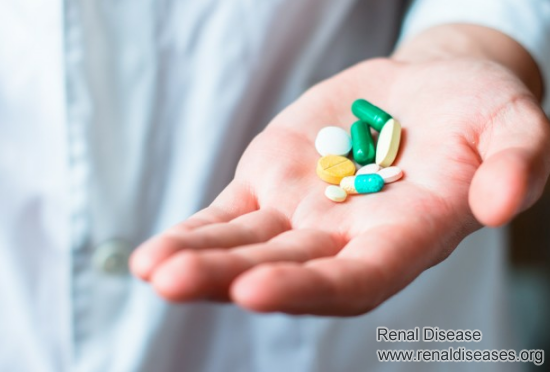Whatsapp: +8615512139310
- Email us:
 Currently tolvaptan is widely used into ADPKD treatment. But not all patients can use it. Here are some precautions you should taken during the tolvaptan treatment for patients with ADPKD.
Currently tolvaptan is widely used into ADPKD treatment. But not all patients can use it. Here are some precautions you should taken during the tolvaptan treatment for patients with ADPKD.
1. Specific hepatotoxicity: Tolvaptan is associated with elevated alanine transaminase and aspartate transferases (ALT and AST). In a few cases, total bilirubin (TB) is elevated. These elevated liver enzymes, which represent significant liver damage, are reversible if tolvaptan is discontinued rapidly. The guidelines recommend that tolvaptan be discontinued, including:
(1) ALT or AST is 8 times higher than the normal upper limit;
(2) ALT or AST is 5 times higher than the normal upper limit for 2 weeks.
(3) ALT or AST is three times higher than the normal upper limit and BT is two times higher than the normal upper limit.
(4) ALT or AST is three times higher than the normal upper limit with symptoms of persistent liver injury.
2. Access to water: Tolvaptan induced drainage may cause adverse reactions related to water loss, such as thirst, polyuria, nocturnal urine, frequency of urine, etc. Therefore, patients must have access to water and be able to drink enough water to avoid dehydration.
3. Dehydration: Special care should be considered especially in patients with diseases affecting adequate fluid intake or those at increased risk of water loss, such as vomiting or diarrhea. Such patients should discontinue or reduce the dosage of tolvaptan and increase fluid intake.
4. Urinary Outflow Tract Obstruction: Adequate urine volume must be ensured. Patients with partial obstruction of the urinary outflow tract, such as benign prostatic hyperplasia or dysuria, have an increased risk of acute urinary retention.
5. Water and electrolyte disorders: The voiding effect of tolvaptan may lead to dehydration and increase blood sodium levels. Therefore, serum creatinine and electrolytes should be evaluated to monitor dehydration before and after tolvaptan treatment.
6. Allergic reactions: Very few allergic reactions have been reported after tolvaptan treatment. If an allergic reaction occurs, the treatment of tolvaptan must be stopped immediately and appropriate treatment must be given.
7. Diabetes mellitus: It has been reported that tolvaptan may lead to hyperglycemia, so diabetic patients treated with tolvaptan must be treated with caution.
8. Increased uric acid: Decreased renal clearance of uric acid is a known effect of tolvaptan. Adverse reactions to gout are reported to be more common in patients treated with tolvaptan than in patients treated with placebo.
9. Effect on GFR: A decrease in reversibility of GFR was observed at the beginning of tolvaptan treatment.
Now you know the precautions of Tolvaptan treatment for patients with ADPKD. For more information on PKD treatment, please leave a message below or contact online doctor.
Tag: PKD Treatment PKD
Previous:Is There Any Hospital to Permanently Treat Polycystic Kidney Disease
Next:None